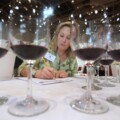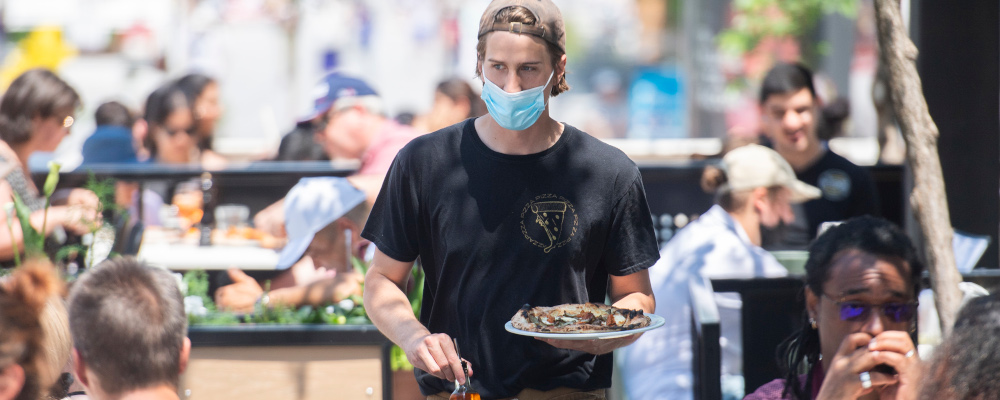I think it was in one of Mordechai Richler’s columns for the National Post, as opposed to the longer pieces in the New Yorker, though I’m not sure because I can’t find it online. It’s the argument in it that I remember: if the Fathers of Confederation and Queen Victoria had chosen Montreal instead of Ottawa as the nation’s capital, Canada would have escaped much of the drama of its 20th-century constitutional crises.
Questions of national unity might be put in the more serious parts of The Hub, but Richler’s idea, or at least the idea that Montreal could have been the country’s capital, stayed with me as I roamed its streets and ate well in its restaurants on a visit last week. I lived in Montreal as a student, while Richler was alive and well and drinking on Crescent Street, and now that my son lives there as a student, I am delighted to visit more frequently.
I live in what’s now the country’s biggest city, but that status is recent. For all of the 19th century and most of the 20th century, Montreal was Canada’s metropolis, as well as its financial and cultural centre. It’s where ambitious people moved to, in both languages, from within Canada and across the world.
Montreal retains its status as the metropolis of Quebec and French Canada, however diminished this might seem from west of the Ottawa River. It also has become a magnet for Francophone immigration, not least for France itself. So, whatever its relative size, Montreal retains its big city vibes and its standing as the country’s most urban environment.
This urbanity and sophistication extend famously to the Montreal dining scene, which gained particular notoriety in the English-speaking world in the first two decades of this century. A new breed of chef restaurateurs, like Martin Picard of Au Pied de Cochon, and David MacMillan and Frédéric Morin of Joe Beef, combined the city’s Gallic heritage with its reputation as a place to have a good time.
The new Montreal restaurant revolution was televised and promoted by the likes of Anthony Bourdain. It was written up in the newly expanded food sections of newspapers on both sides of the pond and even regionally insular Canada. Montreal had as great a claim to at least being Canada’s dining capital as it ever had. (Richler, and likely any random Montrealer picked off Sherbrooke Street, would undoubtedly argue it had always been.)
The restaurants weren’t downtown, they were in residential areas, sometimes just gentrifying, like Little Burgundy, or long-neglected Old Montreal. The food was classic, often looking like it had come right out of the 1938 Larousse Gastronomique. The rooms were loud and full of energy: everyone ate too much, and a lot of them drank too much too. If you knew where to go, dining out in Montreal was a really good party.
Then, of course, came the COVID lockdowns. The party was over and, like everywhere else, restaurateurs began the slow recovery of the hospitality industry over the last year and a half. On my third late summer or autumn visit in as many years I am happy to report the city is back and I had the pleasure of dining at three very different restaurants that nonetheless were bound by a golden thread of good food and fun Montreal-style.
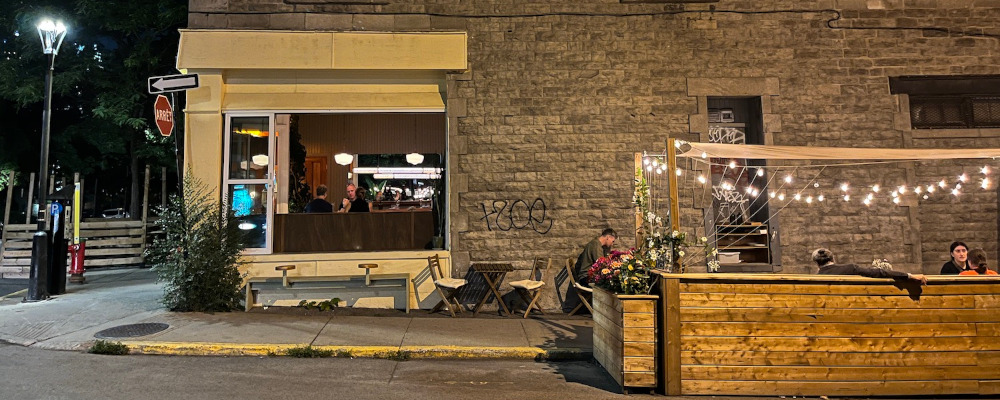
Nolan
1752 Notre-Dame Ouest
Nolan is the newest of three restaurants I dined at last week, having just opened in 2022. It was busy on a Monday night with a crowd that ranged in age from 20 to 50 and beyond. The food is vaguely Italian (some pasta), but mostly farm or forage-to-fork seasonal with a little French thrown in (a duck breast and a steak). The room is warm and homey, as though you had come over to a dinner party.
The food comes in small and larger plates and the idea is to share and pass them around, and it works. The young waitstaff were friendly and more than competent, especially on the tightly curated wine list. (Yes, I ask questions, too.) Nolan’s easy charm made it hard to leave once the last of the pudding chomeur and digestives were gone.
L’Express
3927 rue Saint-Denis
There have been occasions where I have been in Montreal and not gone to Toujours L’Express, but they have been mercifully few, and if I am able to get a seat, at the zinc bar or on the black and white tiled floor of the dining room, I will take it. L’Express has been open since 1980, although it feels older. It was already very much an institution in the early 1990s when I was a student.
I wrote about L’Express in a Hub piece about 10 of my favourite restaurants and the last visit confirmed my ranking. The service at L’Express is veteran and archly professional, and the American tourists in T-shirts and baseball caps are treated no differently than the locals in suits. The food never disappoints and satisfies all palates, as long as you like classic bistro.

Damas
1201 Avenue Van Horne
If Nolan is the present and L’Express the (near) past, is the Syrian restaurant Damas the future of Montreal dining? That would make for a tidy column. I could frame it as Allophone Montreal taking over from Anglo and Franco, except it’s been around since 2010, which is a long time in restaurant years.
Tucked away at the bottom of Outremont, on the other side of the Mountain, Damas is definitely off the beaten tourist track. And yet it took three tries over three years to get a late Wednesday night booking. At nine o’clock the restaurant wasn’t full, but it was close, with all manner of Montrealers from families to first dates.
Syria is a member of the Francophone, and so Quebec, with its particular immigration program, has been settling people from there and its Levantine neighbour Lebanon, for a long time. Damas is a fancy restaurant, and I suspect a point of pride for Montreal’s Middle Eastern community and something of a fine dining novelty for a city dominated by French tradition.
Damas serves very good, classic Middle Eastern dishes made from fresh ingredients whose provenance is declared. It has two large, ornately decorated tiled rooms, and has a humming energy. The portions are large, so it’s best enjoyed in a party of four or more, unless one opts for the long dish of dishes that make up the tasting menu (we did not).
What Damas is not is cheap, and the service may be inclined to encourage pricey dishes involving whole fish or racks of lamb, the restaurant imports a serious red Syrian wine, the Cabernet blend Domaine de Bargylus, whose Mediterranean earthiness pairs nicely with everything. Alas, what price can one put on fun?
Recommended for You
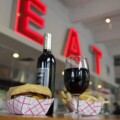
Malcolm Jolley: Hi-Lo for the wine world: Mixing fancy and simple works for wine as well as it does in fashion

‘The $64 million question’: Will the Canadian government stop the Air Canada strike?

Flying costs half as much as it did in 1995—and without government fees, it would be even cheaper
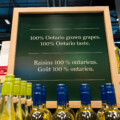
Malcolm Jolley: Forget California, it’s time for Canadian Chardonnay
